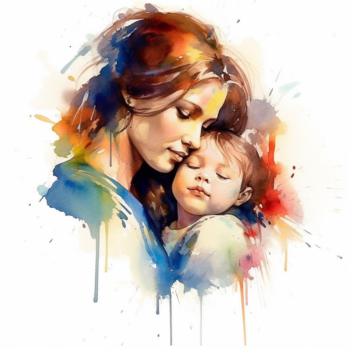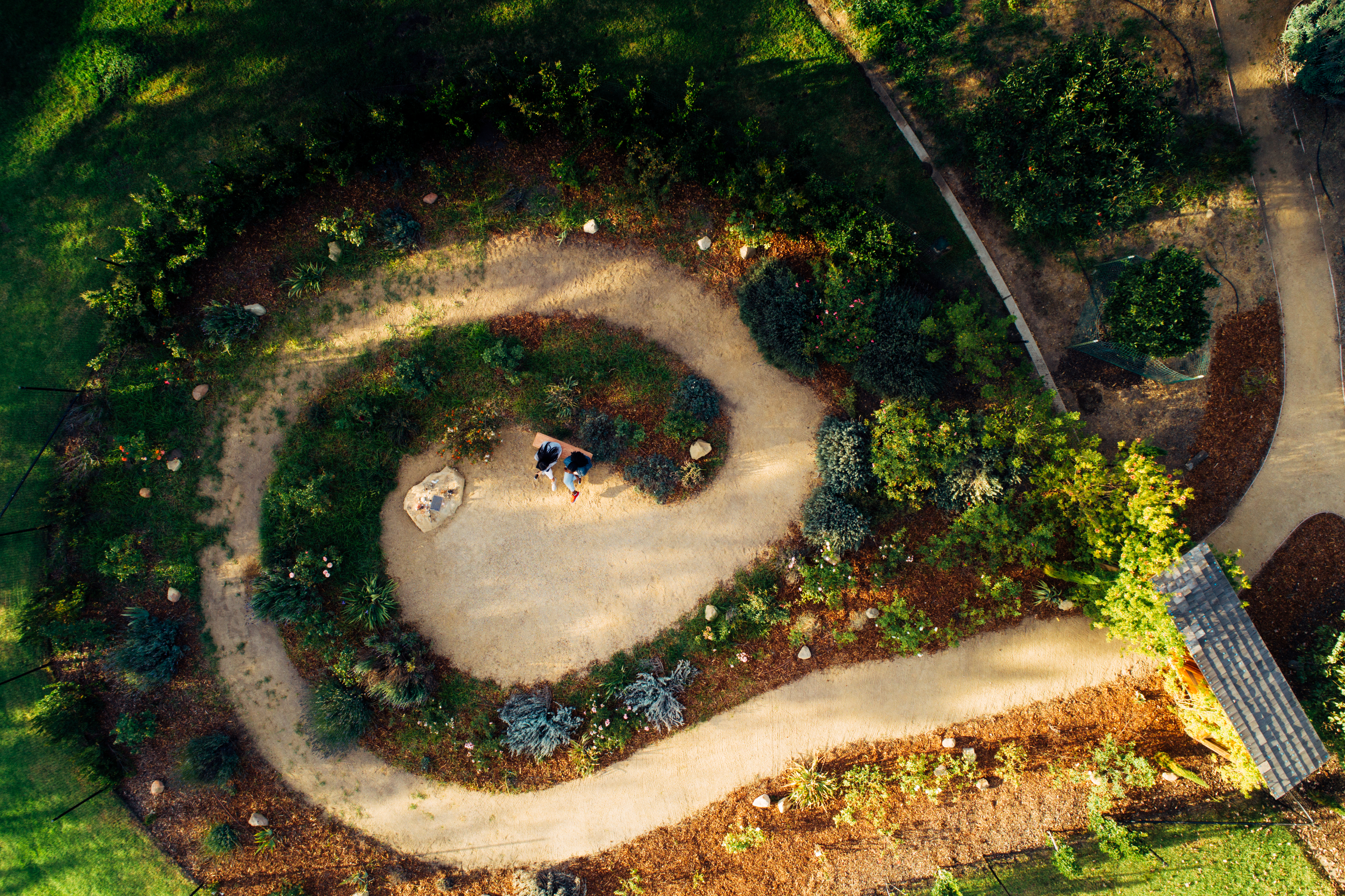Phil Garrity is currently pursuing a Ph.D. in Clinical Psychology with an Emphasis in Depth Psychology at Pacifica Graduate Institute. He recently had a piece in the book Gemini and the Sacred: Twins and Twinship in Religion and Mythology. I’m delighted to speak with him about twinship, otherness, and his work and experience with critical illnesses.
Angela: You recently contributed an epilogue, along with your twin brother, to the book Gemini and the Sacred: Twins and Twinship in Religion and Mythology, edited by Kimberley C. Patton, who is your former professor at Harvard Divinity School. Tell us a little about the book and also what it was like to co-write the epilogue with your twin.
Read More
Posted in:
The Psyche,
Mythology,
clinical psychology,
depth psychology,
Pacifica Graduate Institute
Camille Jarmie Harris, Ph.D. has recently joined the faculty at Pacifica in the Clinical Psychology program. This is Part II in the conversation I had with Dr. Harris about her work and teaching in hermeneutic analysis.
Angela: What is it like working with infants in a therapeutic setting, since as you say, they cannot thrive without being in relation to the family?
Camille: From Ages 0 to 5, I work within the context of the family, often times supporting the parents to understand their children and work through challenges they’re experiencing themselves so they can be present and available to their baby. A birthing parent and family in the post-partum period might be experiencing a whole range of emotional experience that can be related the stress of pregnancy, birth, and psychological transition into parenting, and can sometimes lead to emotional challenges that affect ability to interact and connect with baby. There are diverse expectations about what this time is “supposed” to be like that are informed by personal experience as well as by the larger context of culture. So I help parents to understand the challenges they might be having, understanding who this baby is, to learn to trust their intuition and empower them to understand themselves and their own children in terms of the behavior they see. I work to empower a sense of knowing in those early years.
Read More
Posted in:
The Psyche,
clinical psychology,
depth psychology,
Pacifica Graduate Institute
Camille Jarmie Harris, Ph.D. has recently joined the faculty at Pacifica in the Clinical Psychology program. I’m excited to hear more about her work and teaching in hermeneutic analysis.
Angela: We share an undergraduate alma mater in UCSC (Go Banana Slugs!), where you majored in psychology with an emphasis in social psychology, then to Portland for a Master’s in Community Mental Health Counseling with an emphasis in Children and Adolescents. And this led to your Ph.D. here at Pacifica, in Clinical Psychology with an emphasis in depth psychology. I think it’s informative for potential enrollees to see the widely different paths by which people arrive at Pacifica. Is there a theme or inspiration that carried you through your academic journey and what most appealed to you about the Clinical program here?
Read More
Posted in:
The Psyche,
clinical psychology,
depth psychology,
Pacifica Graduate Institute
Soulcraft™: A Guide to the Numinous Depths
An Interview with Brian Stafford, M.D., M.P.H.
“Soulcraft skills and practices evoke the world-shifting experience of soul encounter —the revelation of our unique mythopoetic identity, an identity expressed through symbol and metaphor, image and dream, archetype and myth, an identity embodied in a mysterious story that whispers to us in moments of expanded awareness and exquisite aliveness.”
“Introduction to Soulcraft™” with Doug Van Houten and Brian Stafford will be a zoom workshop from Pacifica, October 28-30, 2022. For more information, visit our website. Brian Stafford is “a guide to the wilderness of nature and soul” and “an agent of cultural awakening and transformation.” I’m delighted to be speaking with him.
Read More
Posted in:
The Psyche,
Education,
depth psychology,
Pacifica Graduate Institute
Joseph Cambray, Ph.D., has been the President and CEO of Pacifica for 5 years, and previous to that served as Provost. He will be leading the Pacifica Workshop Fielding the Unconscious: The Origins and Evolution of Field Theory on June 7, 14, and 21, 2022. As always, I am delighted to be speaking with him about his research and teaching.
Angela: In your upcoming June seminar, you will begin with the origins of the field concept in depth psychology, starting in the 19th century, from William James to Freud to C.G. Jung. In particular, you discuss the symbolic elements of the unconscious that Jung included in his clinical encounters. I will admit that I don’t know what field theory is. For any readers who might also be wondering, can you give us a quick introduction to the concepts of field theory, and the importance of Jung’s focus on the unconscious and symbolism as it relates to the emergence of depth psychology as a field?
Read More
Posted in:
The Psyche,
graduate school,
Pacifica Graduate Institute,
world issues,
The Retreat at Pacifica,
unconscious
A blog post by Melissa Ruisz Nazario based on an interview with Heesun Kim, LMSW.
About five or six years ago, Heesun Kim, LMSW, a student in Pacifica’s Ph.D. Program in Integrative Therapy and Healing Practices, was on the subway in New York City, and she noticed a woman sitting in front of her with tears streaming down her face. She was trying so hard to hold in those tears. It was a face that felt very familiar to Heesun, and she thought about the many times she had been in a similar situation.
“So I remember I was, a couple times, I ended up in the public bathroom, so I had to cry there,” she says. “And then I thought, you know, my grief, my sadness or all this sorrow needs to be respected, not in the corner of a public bathroom.”
Read More
Posted in:
The Psyche,
transformative,
Psychology,
depth psychology,
images,
Pacifica Graduate Institute,
narrative,
somatic,
relationship,
relationships,
interview,
Integrative Therapy & Healing Practices
A blog post by Melissa Ruisz Nazario based on a webinar presented by Keiron Le Grice, Ph.D.
What is archetypal cosmology, and why might you want to study it? Check out the post Archetypal Cosmology, Part I: Beyond Outer and Inner Space for a more in-depth description that gives background on the field.
To summarize, archetypal cosmology is a new discipline but rooted in the ancient practice of astrology. It is based on the idea that the celestial bodies like the solar system’s planets and the sun and their relative configurations reflect the deep order of the psyche—the psyche being the totality of psychological experience, according to C.G. Jung.
Read More
Posted in:
The Psyche,
James Hillman,
archetypes,
Psychology,
soul,
depth psychology,
psyche,
humanities,
Pacifica Graduate Institute,
sacred,
cosmology,
symbolism,
Spiritual
A blog post by Melissa Ruisz Nazario based on a webinar presented by Keiron Le Grice, Ph.D.
Astrology is the ancient practice of looking at the relative positions of celestial bodies and their relationship and influence on earth, the natural world, and humans. [1] Depth psychology has to do with psychologies and therapies involving “the exploration of the subtle, unconscious, and transpersonal aspects of human experience.” [2]
Read More
Posted in:
The Psyche,
James Hillman,
archetypes,
Psychology,
soul,
depth psychology,
psyche,
humanities,
Pacifica Graduate Institute,
sacred,
cosmology,
symbolism,
Spiritual
A guest blog post by Mary A. Wood, Ph.D., co-Chair of the M.A. Program in Engaged Humanities and the Creative Life at Pacifica Graduate Institute.
“The soul should always stand ajar, ready to welcome the ecstatic experience.” —Emily Dickinson
There are moments in life when time seems to stand still—moments when we find ourselves transfixed, and eventually transformed. These moments can be cosmic in scale, as reflected in the awe that we feel when beholding a rare solar eclipse, or an approaching storm. These moments may also be quite intimate, but no less moving, such as when we witness an animal emerging from hiding or when we hear an exquisite song. We recognize, and always remember these moments because they are announced by bodily sensations; we gasp, our hearts beat faster, and tears often flow. Our bodies tell us that the ordinary has given way to the extraordinary. These experiences are best described as “aesthetic,” as we find ourselves living, at least for a few moments, as creatures that are gloriously and achingly alive.
Read More
Posted in:
Joseph Campbell,
The Psyche,
James Hillman,
archetypes,
transformative,
C.G. Jung,
Psychology,
art,
soul,
depth psychology,
symbol,
mythological,
humanities,
sacred,
symbolism,
Spiritual
A blog post by Melissa Ruisz Nazario
At this time of year in the northern hemisphere, the earth’s axis orients away from the sun, temperatures cool, and many of us celebrate with loved ones some form of thankfulness and respite from work–modern iterations of our ancestors’ harvest festivals.
Though the concept of gratitude is also ancient, it has become a bit of a modern buzzword. So, is gratitude really as beneficial as the masses say it is? Actually, yes. Robert A. Emmons and Robin Stern, researchers known for their work in studying gratitude, reviewed studies on the subject and list several of the physical, emotional, and psychological outcomes of cultivating gratitude in “Gratitude as a Psychotherapeutic Intervention.” [1]
Read More
Posted in:
The Psyche,
archetypes,
transformative,
Psychology,
soul,
depth psychology,
mythological,
Spiritual,
resources


.png)



.png)


.jpg)



